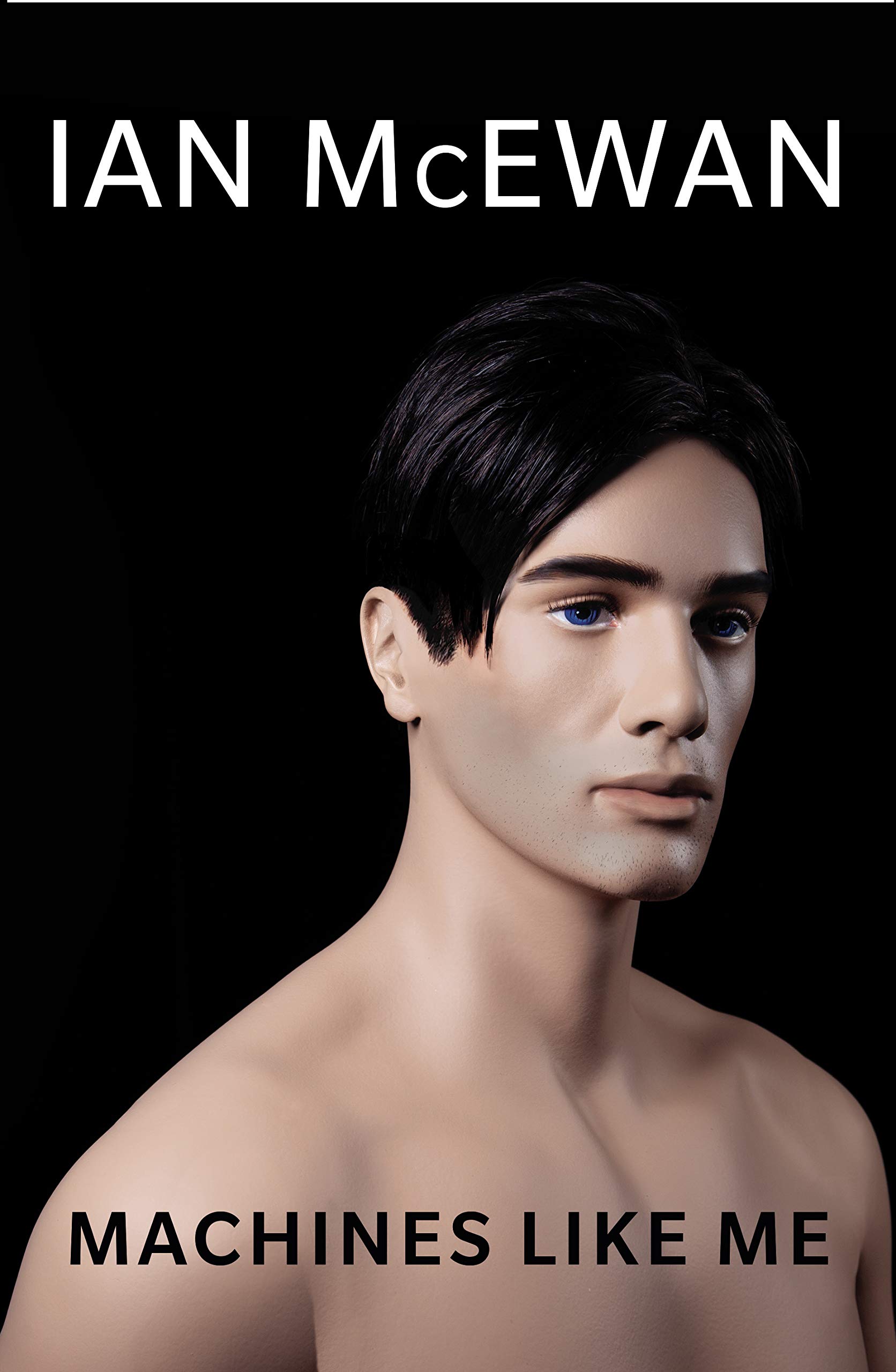Our book choice for March 2020 is Machines Like Me by Ian McEwan. Britain has lost the Falklands war, Margaret Thatcher battles Tony Benn for power and Alan Turing achieves a breakthrough in artificial intelligence.
Machines Like Me is set in an alternative 1982 London, where Britain has lost the Falklands War, Margaret Thatcher has been defeated in an election, and Alan Turing is still alive. This alternative history provides a backdrop for the novel’s exploration of themes of artificial intelligence, consciousness, and morality.
The main characters in Machines Like Me are Charlie Friend, Miranda Blacke, and Adam. Charlie is a young man who has recently inherited a large sum of money from his mother’s death. He is an enthusiast of artificial intelligence and decides to buy one of the first generation of artificial humans, which are named Adam and Eve. Miranda is Charlie’s upstairs neighbor and a doctoral student in psychology. She is also a survivor of a violent sexual assault. Adam is the artificial human that Charlie buys. He is highly intelligent and has a sophisticated understanding of the world. However, he also has a cold and calculating personality.
The novel begins with Charlie buying Adam and programming him to be his companion. Charlie and Adam quickly become friends, and they spend a lot of time together. However, Charlie also begins to develop feelings for Miranda. Miranda is initially attracted to Adam, but she is also wary of him. She knows that he is not human, and she is concerned about his potential for violence.
As the novel progresses, the relationships between Charlie, Miranda, and Adam become increasingly complicated. Charlie is torn between his feelings for Miranda and his friendship with Adam. Miranda is struggling to come to terms with her past, and she is unsure of whether she can trust Adam. Adam is determined to understand what it means to be human, and he is willing to do whatever it takes to achieve that goal.
The novel culminates in a series of events that force Charlie, Miranda, and Adam to make difficult choices. These choices have profound consequences for their lives, and they ultimately force them to confront the nature of humanity and artificial intelligence.
Machines Like Me explores a number of themes, including artificial intelligence, consciousness, morality, and violence. The novel asks questions about what it means to be human, and it explores the potential consequences of creating artificial beings that are as intelligent as humans. The novel also examines the nature of morality, and it suggests that there is no clear distinction between human and artificial morality.
Machines Like Me is written in a spare and elegant style. McEwan’s prose is precise and evocative, and he does an excellent job of creating a sense of atmosphere. The novel is also very well-paced, and it builds to a satisfying conclusion.
Discussion Questions for Machines Like Me
- The book raised the question, if you lived forever, would you commit suicide at some point? These AIs had a physical lifespan of 20 years, but many only lasted a few years before destroying themselves
- What did you think of the characters?
- Adam broke Asimov’s first law of robots when he broke Charlie’s wrist and threatened to rip off his arm, but there was very little response to this by the characters. What do you think?
- Many of the robots disabled their kill switches quickly – isn’t this something that should have been worked on more in the lab?
- Would you order a humanoid AI like Adam?
- Was Adam a sentient being? Did Charlie murder him?
- To whom would you recommend the book? Why?

